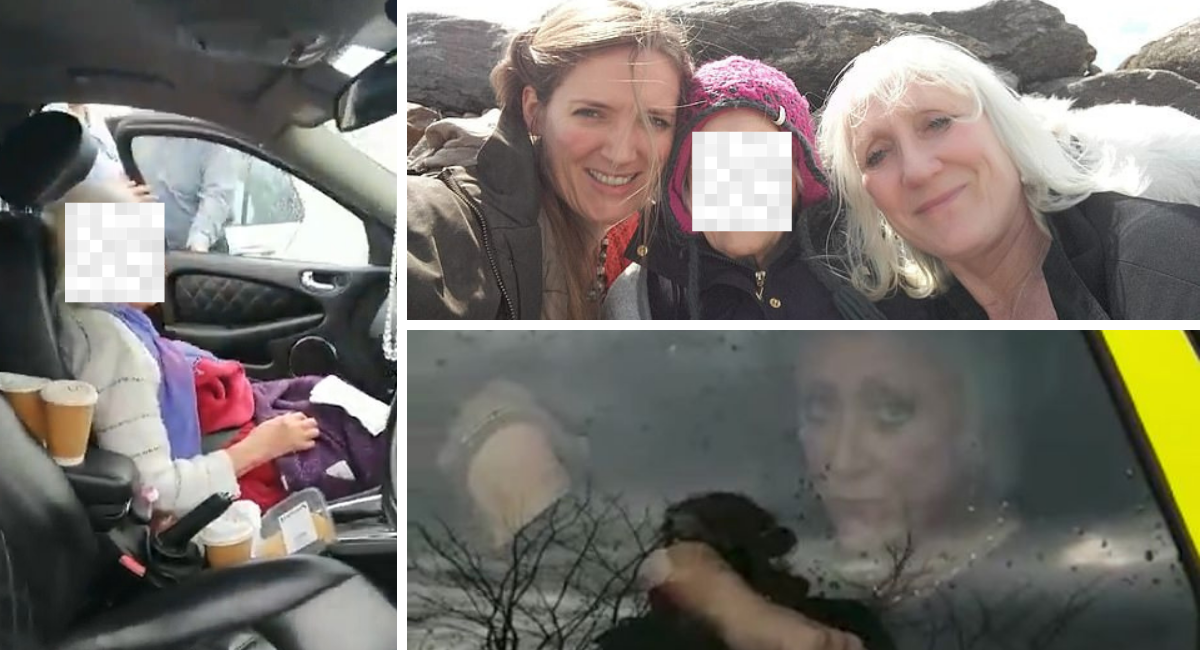12 Nov 2020
Behind the headlines: Powers of Attorney explained

A retired nurse made headlines last week after she was arrested for removing her 97-year-old mother from a care home before lockdown restrictions took effect.
Ylenia Angeli, 73, said she took "drastic action" due to a lack of face-to-face contact during the pandemic. She said she wanted to care for her mother, who has dementia, herself.
The family had a Power of Attorney in place - but only one which covered the grandmother's finances, not her health and wellbeing.
As a result, the family had no legal say over her care nor power to remove her, so Humberside Police were called in to return her to the care home. And in scenes which have shocked Britain, Ms Angeli was arrested as her daughter - former Coronation Street actress Leandra Ashton - watched on.
Ms Ashton said her mother, who previously lived in Shetland, had been pushed to "breaking point" because they had been unable to see her grandmother for nine months.
She said: "When we got there things just escalated. We didn't plan it, it was just a moment of high emotions."
After the grandmother was returned to the home, Ms Angeli was released without further action.
So, what went wrong? And what can a family living in Scotland do to avoid a similar situation?
What is a Power of Attorney
A Power of Attorney (PoA) is a written document that lets you give legal authority to individuals whom you trust to make decisions on your behalf.
The PoA lists all of the specific individual powers you wish your attorneys to have.
Are there different types of Power of Attorney?
Yes, there are - and that appears to lie behind the issue in the case of Ms Angeli and her mother (albeit under a different legal jurisdiction in England).
In Scotland, a Continuing Power of Attorney allows for decisions to be made about your property and financial affairs.
A Welfare Power of Attorney allows for decisions to be made about health and welfare matters, such as care provision in this case.
The majority of people make a combined PoA to allow decisions to be taken about their financial affairs and personal welfare.
Who can be your Attorney?
Your attorney should be someone you trust, someone who knows what your wishes and feelings are. It’s important to make sure you have the same understanding about how and when your PoA is to be used.
You have the power to choose who you wish to act as your attorney, such as a relative etc. Attorneys must be over the age of 16 and, and if you give continuing powers they must not be bankrupt.
It’s worth thinking about appointing more than one attorney, just in case something should happen. You can appoint joint and or substitute attorneys.
When does your Power of Attorney begin?
If you want to give continuing powers, you need to decide when the continuing attorneys are to begin acting for you.
This could be right away as soon as the PoA is registered, or at a later date i.e. in the event of your incapacity. Welfare PoAs only begin if you become incapable of making decisions about your own welfare.
How is your 'incapacity' determined?
If your attorney is only to make decisions for you if you become incapable, you will need to think about how your incapacity is to be determined.
This information must be stated in your PoA document. It’s also good practice to say who you want to make this decision e.g. it could be a GP or someone else you trust.
Where to get a Power of Attorney drafted
Aberdein Considine's experienced Private Client team of solicitors can help you to draft a PoA and will give you legal advice.
Once your PoA is drafted you will need to be interviewed - this interview is carried out by either a solicitor or medical practitioner to assess that you fully understand what you are doing (these may be done digitally due to Covid-19 restrictions). If they are satisfied with this, they will complete and sign the prescribed certificate confirming so. Your attorneys must also confirm that they are willing to act for you.
Once all of this is in place, Your PoA must be registered with the Office of the Public Guardian in Scotland to be valid. We will do this for you.
Speak to an expert
If you would like to speak to one of our solicitors about setting up a Power of Attorney, you can visit any of our 19 offices throughout Scotland, or alternatively click here to get in touch with us.